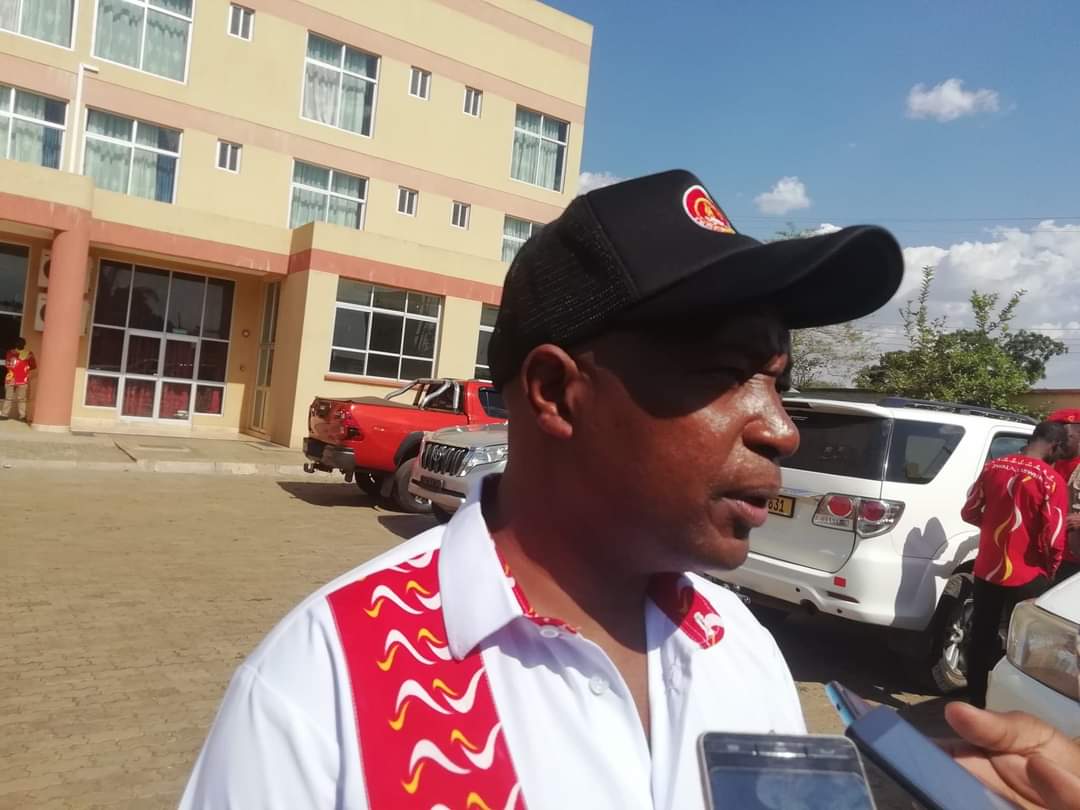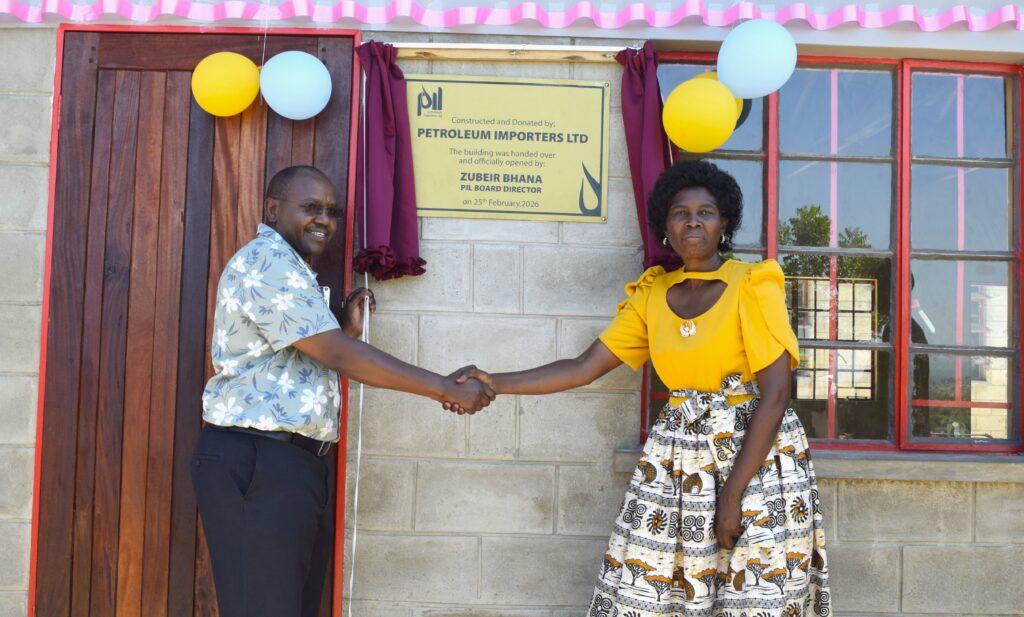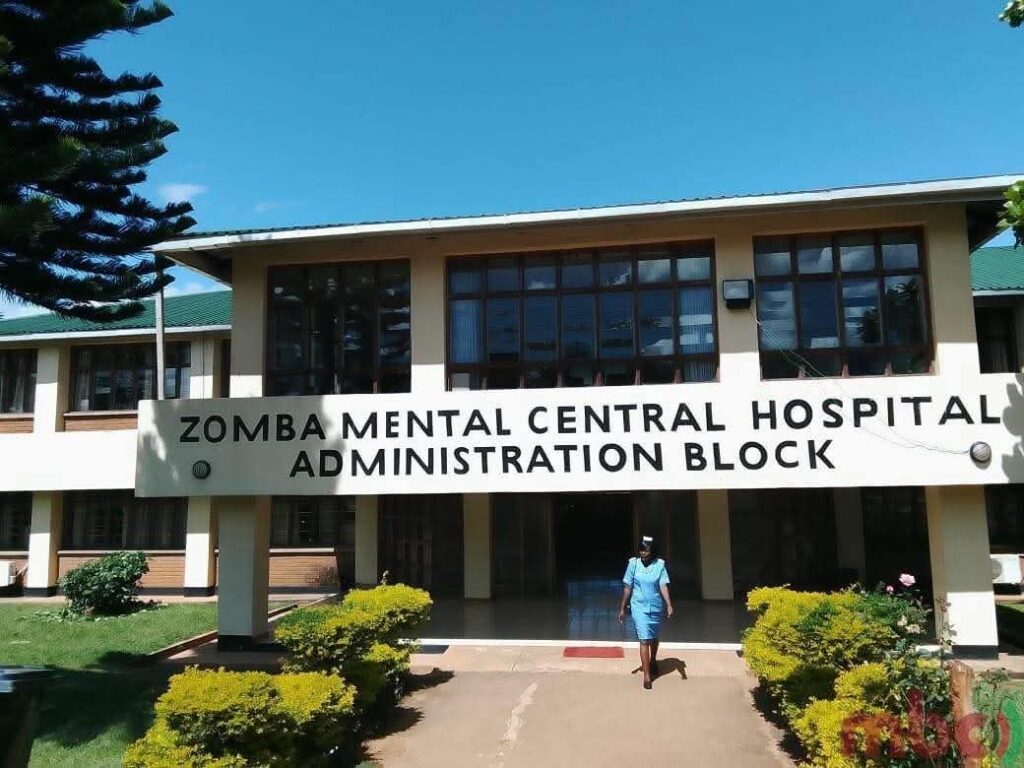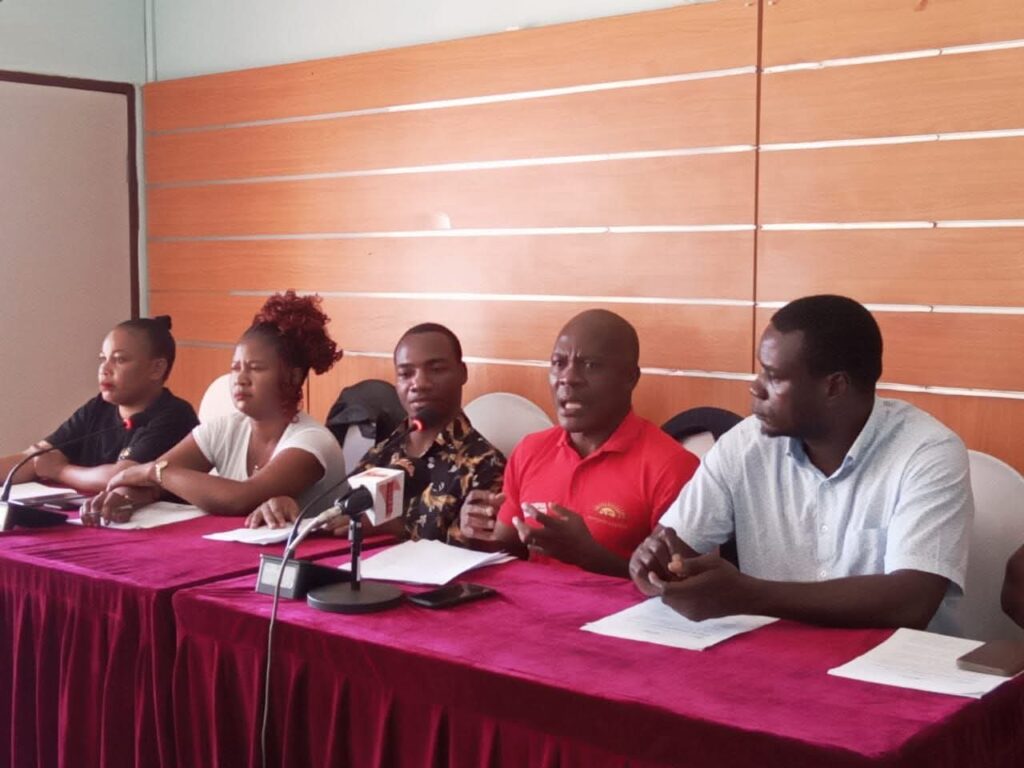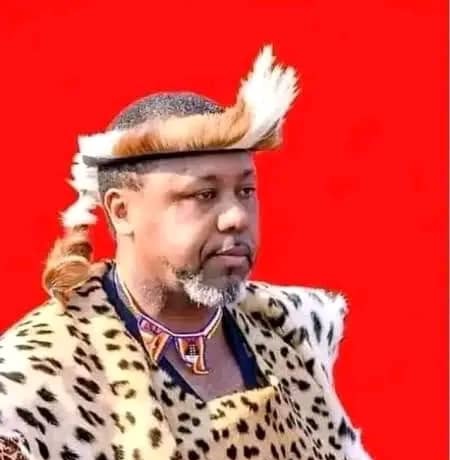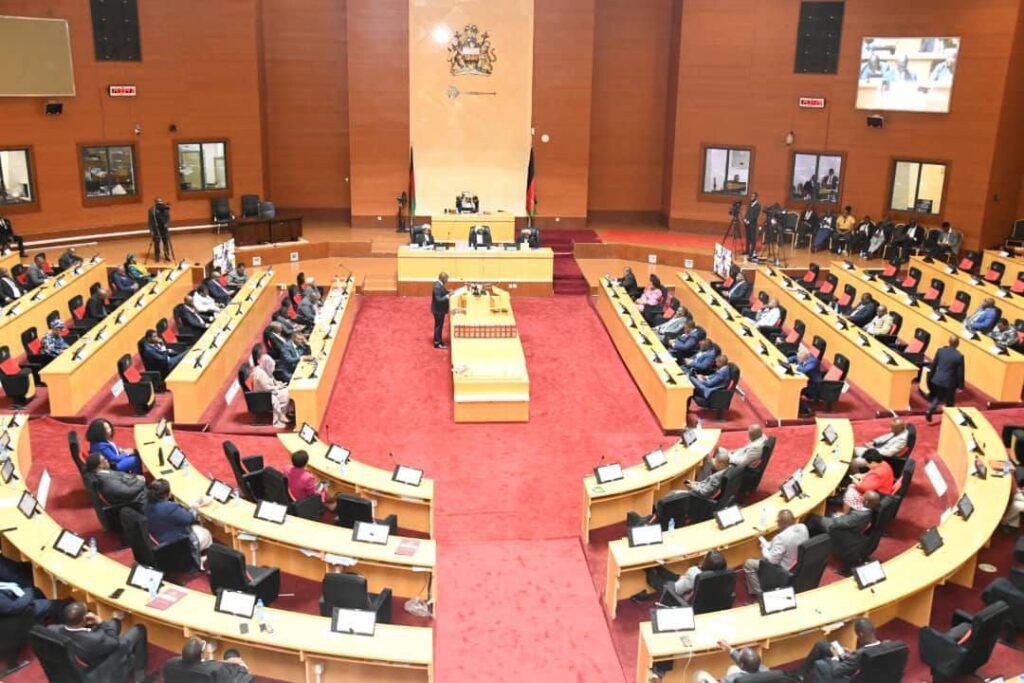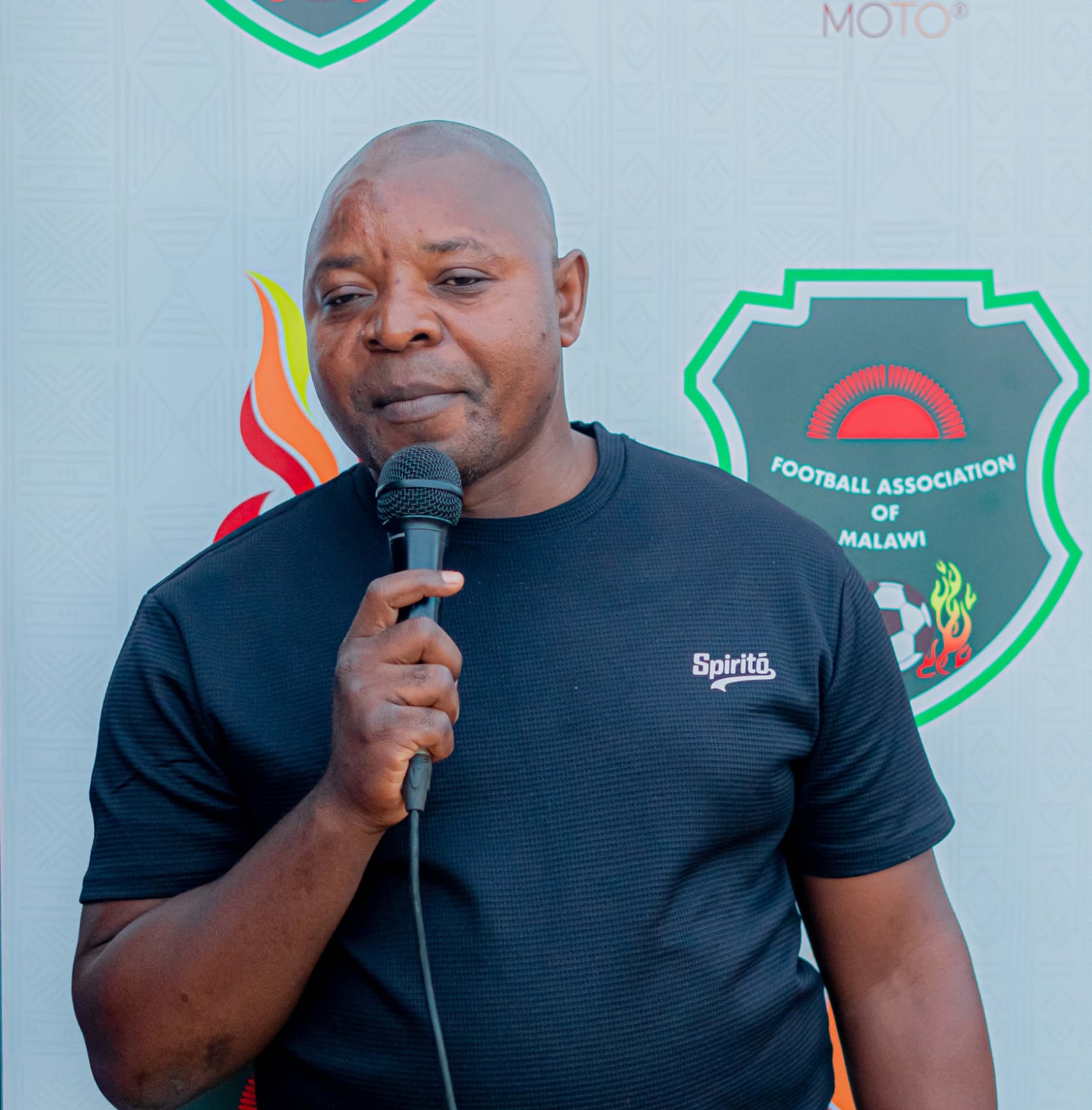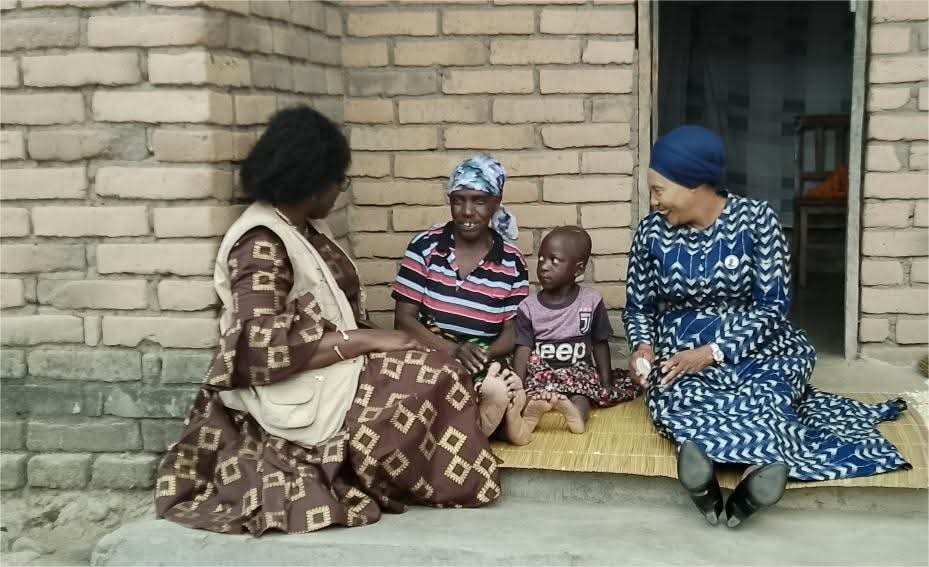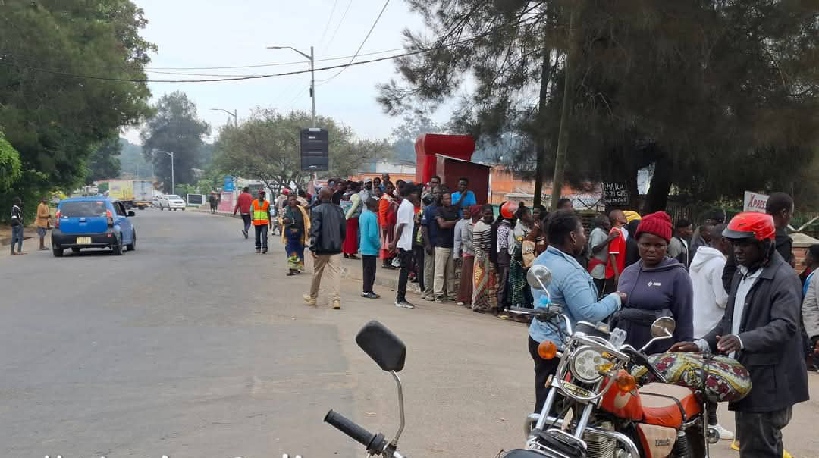Dalitso Kabambe, one of the presidential aspirant for the UTM party, has called on delegates to vote for visionary leaders at the upcoming elective conference.
Speaking to Bua Central Region delegates in Kasungu District, he expressed confidence in his ability to lead the party to victory in the 2025 general elections.
“I’m very optimistic that if I am voted into the UTM presidential seat and win next year’s polls, my experience will help address the challenges Malawians face today,” Kabambe stated.
UTM Bua Central Region Governor Gerald Mbewe hailed Kabambe’s remarks, underscoring the need for intelligent leadership to ensure the party’s success.
The UTM party’s 2024 elective conference is scheduled for November 17.
Other news
- PIL donates K150 million ICT lab and library to Katole CDSSby By Suleman Chitera
By Suleman Chitera
Petroleum Importers Limited (PIL), a consortium of four oil marketing companies namely Puma, Total, Petroda, and Vivo Energy, has handed over an ICT laboratory and a library block worth K150 million to Katole Community Day Secondary School (CDSS) in Thekelani, Thyolo aimed at promoting quality education in the country.
The development is expected to improve the learning environment at the school, particularly in science and technology-related subjects, by providing students with access to modern learning facilities.
Speaking during the handover ceremony on Wednesday, PIL Board Director Joseph Kerring described the donation as a significant investment in the future of young people in the area, emphasizing that education remains one of the most powerful tools for transforming lives.
“This donation is a symbol of hope. It is a commitment to empowerment. It is a statement that our children deserve the best possible environment to learn and succeed,” he said.
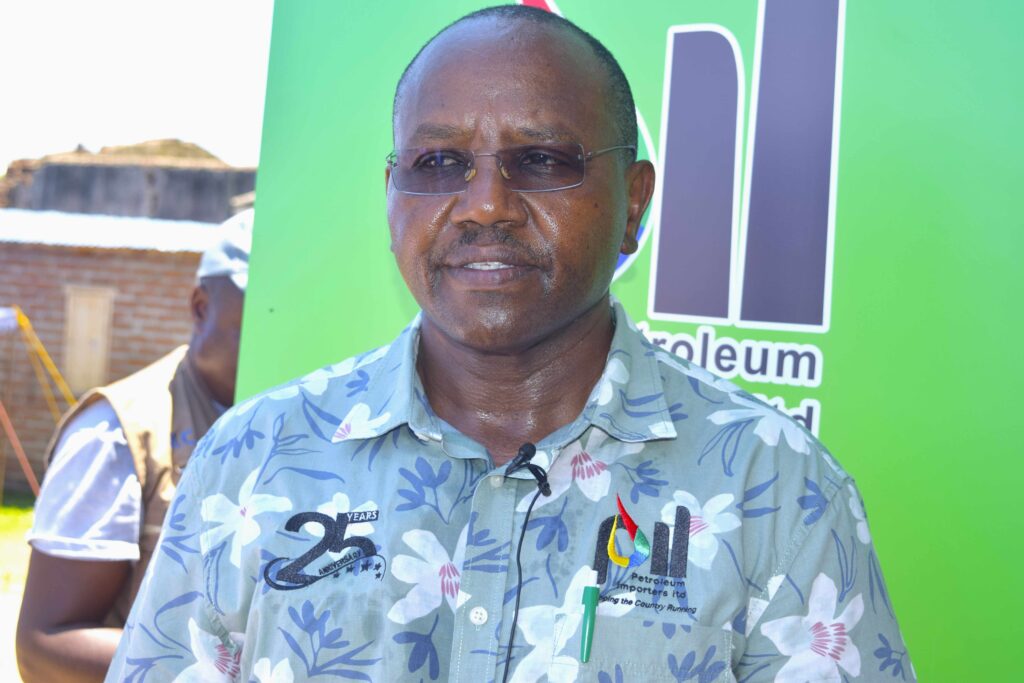
Kerring who is also Managing Director of Vivo Energy, said the ICT laboratory will serve as a foundation for innovation and creativity among learners, enabling them to develop practical skills necessary for the modern world.
He added that the library will play a critical role in broadening students’ knowledge and strengthening their academic performance.
“The library will open minds to new ideas, new opportunities and new horizons. Students will discover knowledge that extends far beyond the classroom,” he added.
He noted that while community day secondary schools are key to expanding access to secondary education in Malawi, access must be supported by quality infrastructure to ensure meaningful learning outcomes.
Kerring, then, encouraged students to make responsible use of the facilities and called upon the community to safeguard the infrastructure for the benefit of future generations.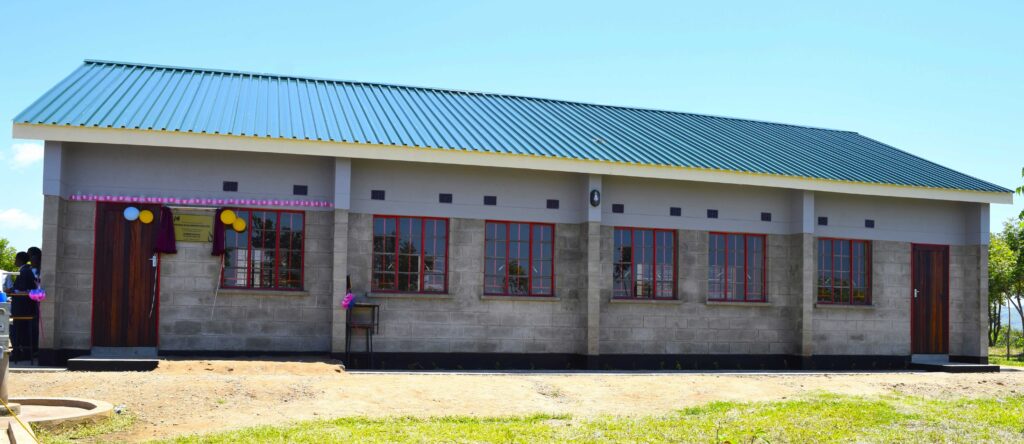
Receiving the donation, Shire Highlands Education Division Manager Evelyn Mjima commended PIL for the gesture, saying the facility will add value to the school, while urging both students and the community to safeguard the infrastructure.
“Our role is to utilize the infrastructure effectively while taking care of it so that even future generations can benefit from this donation,” said Mjima.
Katole CDSS Headmaster, Edward Abraham expressed gratitude to PIL for the support, saying the donation has come at a time when the school was facing challenges in delivering quality education.
“It is a wonderful gift that they have given us, and it will go a long way in bringing the digital world closer to students in this rural area. Our students are already benefiting from it,” said Abraham.
- Nurse Jailed Three Years for Assaulting Patient at Zomba Mental Hospitalby Malawi Freedom Network
By Staff Reporter
The Senior Resident Magistrate’s Court in Zomba has sentenced a nurse to three years’ imprisonment for assaulting a patient at Zomba Mental Hospital, in a case the court described as a serious breach of duty toward a vulnerable individual.
Reuben Anjiru Kaliza, who was stationed at the mental health facility at the time of the incident, was convicted of causing grievous bodily harm to a patient, Joseph Mbale.
The court heard that in October 2024, at around 2:00 a.m., Mbale woke up and began making noise in the ward, urging fellow patients to wake up and bathe, claiming he would take them to Kamuzu Stadium at 7:00 a.m. The disturbance reportedly unsettled other patients within the ward.
According to evidence presented during trial, Kaliza attempted to restore order and instructed patients to return to their beds. However, Mbale allegedly continued shouting and encouraging others to remain awake. In the course of the confrontation, Kaliza struck Mbale forcefully on the back.
Medical evidence showed that the blow caused serious internal injuries to Mbale’s spleen. He was subsequently rushed to Zomba General Hospital for urgent treatment.
The prosecution paraded several witnesses, including the medical doctor who treated the victim, fellow patients who were present during the incident, and hospital staff who worked alongside the accused. Mbale also testified before the court.
In her ruling, the Senior Resident Magistrate said the State had proved its case beyond reasonable doubt. The court emphasized that healthcare workers have a heightened responsibility to protect patients, particularly those under institutional care who may not be in a position to defend themselves.
Kaliza was sentenced to three years’ imprisonment, with the court noting that the custodial sentence should serve as a deterrent against the abuse and ill-treatment of patients in medical and mental health institutions.
- Judiciary Under Siege: CDEDI Demands Immediate Resignation of Chief Justice and Attorney General Over Corruption Claimsby By Suleman Chitera
By Suleman Chitera
The Centre for Democracy and Economic Development Initiative (CDEDI) has issued a stern seven-day ultimatum demanding the immediate resignation of Attorney General Frank Mbeta and Chief Justice Rezine Mzikamanda, accusing the country’s top legal authorities of presiding over a justice system tainted by corruption and inaction.
CDEDI Executive Director Sylvester Namiwa delivered the explosive demand during a press briefing, describing the current state of the judiciary as “deeply compromised” and warning that public confidence in Malawi’s courts is rapidly eroding.
“Judiciary Has Been Compromised”
Namiwa alleged that corruption within the judiciary has reached alarming levels, with some judges reportedly implicated in malpractice. He claimed that the Chief Justice is fully aware of the alleged misconduct, having received formal reports detailing corruption concerns, but has failed to take decisive disciplinary action.
According to Namiwa, this alleged inaction at the highest level of the judiciary has allowed malpractice to fester, undermining the integrity of the courts and weakening the rule of law.
“This is no longer about isolated incidents. It is about systemic decay within an institution that is supposed to be the guardian of justice,” Namiwa said.
Reports from MLS and FIA
CDEDI further pointed to reports from the Malawi Law Society (MLS) and the Financial Intelligence Authority (FIA), which Namiwa claims reveal that certain judges are allegedly involved in corrupt practices.
While specific cases were not publicly disclosed, Namiwa maintained that the existence of such reports alone raises serious red flags about accountability within the judiciary.
He argued that the alleged failure to act on these findings has contributed to growing public skepticism about the impartiality and independence of Malawi’s courts.
“When citizens begin to question whether justice can be bought or influenced, the entire democratic framework is at risk,” he warned.
Call for Leadership Accountability
CDEDI insists that the resignation of Chief Justice Mzikamanda would clear the path for independent investigations and signal a commitment to restoring institutional credibility. The organisation contends that leadership accountability is necessary to reset the judiciary and rebuild trust.
On the Attorney General, Namiwa alleged that there are multiple corruption allegations surrounding Frank Mbeta. He argued that stepping aside would allow impartial investigations to proceed without perceived interference or conflict of interest.
“The Office of the Attorney General must remain beyond reproach. Any lingering allegations damage the credibility of the State’s chief legal advisor,” Namiwa stated.
Seven-Day Ultimatum
CDEDI has given both officials seven days to resign voluntarily, warning that failure to do so will prompt further action. Although Namiwa did not specify the nature of the next steps, he indicated that the organisation is prepared to escalate the matter in pursuit of accountability.
As of the time of publication, neither the Chief Justice nor the Attorney General had issued a public response to the allegations or the ultimatum.
The unfolding standoff places Malawi’s justice system under intense scrutiny and could mark a pivotal moment in ongoing debates about governance, transparency, and institutional reform in the country.
- MCP member welcomes wholeheartedly Chilima’s new investigationby Malawi Freedom Network
By Vincent Gunde
Social influencer who is also Malawi Congress Party (MCP) member Gerald Chavez Kampanikiza of Dedza, says Malawians wholeheartedly welcomes the new investigation to investigate circumstances surrounding the death of the country’s former Vice President Dr. Saulosi Klaus Chilima, and eight others.
Dr. Chilima and eight others, boarded a military aircraft that crashed in the Chikangawa forest on the 24th June, 2024, all those that were on board the plane, were killed.
The tragic death of Dr. Chilima and eight others, brought millions of questions without answers, and those who were found speaking of Chilima’s death were being arrested and prosecuted in a court of law.
Similar arrests were made by the MCP of Ngwazi Dr. Hastings Kamuzu Banda in 1983 on the four cabinet ministers in the names of Dick Matenje, Aaron Gadama, Twaibu Sangala and David Chiwanga who were tragically murdered and their bodies were dumped at Thambani in Mwanza district on the 18th May, 1983.
The tragic death of Dr. Chilima brought silence in Malawi with conflicting statements from MCP President Dr. Lazarus Chakwera that in that military aircraft, there were 10 people on board which later was changed to nine including Dr. Chilima for the reasons to be best explained by President Chakwera and his MCP led government.
President Chakwera requested for reports on the missing plane every after 4 hours, he did not tell Malawians what exactly he was looking into those reports taking into account that in the missing plane, there was his second in command, this too, can best be explained by President Chakwera himself.
Writing on his face book page, Kampanikiza says according to reports, on the 24th June, 2024 the missing plane reportedly had 10 people on board including the late Vice President Dr. Saulosi Chilima.
Kampanikiza said by 11th June, 2024 the number of people reported on the plane had decreased to nine including the late Dr. Saulosi Chilima.
“Given all passengers passed through the airport, the actual number should have been documented,” he said.
Announcing the fresh inquiry in Parliament on Tuesday, Minister of Justice and Constitutional Affairs Charles Mhango, said President Professor Arthur Peter Mutharika has left the matter to be in the hands of Parliament to appoint a commission of Chilima’s inquiry.
Mhango said the Republican Constitution empowers Parliament to conduct inquiries saying the commission of inquiry to be formed will be joined by experts from outside the country to advise the Commission before it makes the final conclusion on the matter.
- Parliamentary Absenteeism Reaches Crisis Point: 159 MPs Skip Sittingby By Burnett Munthali
By Burnett Munthali
A staggering 159 members of parliament were absent from the latest parliamentary sitting, sparking widespread concerns about their commitment to representing their constituents. This alarming trend has raised questions about the effectiveness of parliamentary proceedings and decision-making.
The absence of such a significant number of lawmakers is particularly worrying, given the crucial role they play in shaping the country’s laws and policies. With only 71 MPs present, the parliament’s ability to conduct meaningful business has been severely hampered.
The implications of this absenteeism are far-reaching, with potential consequences for the country’s development and governance. The absence of MPs may lead to delayed or poorly considered decisions, ultimately affecting the lives of Malawians.
The Speaker of Parliament has warned that measures will be taken against absent MPs, including the withholding of allowances. This move has been welcomed by citizens, who are demanding accountability from their elected representatives ¹ ².
The issue of parliamentary absenteeism is not new, but the scale of the problem is alarming. It’s imperative that MPs take their responsibilities seriously and prioritize their duties to the nation.

